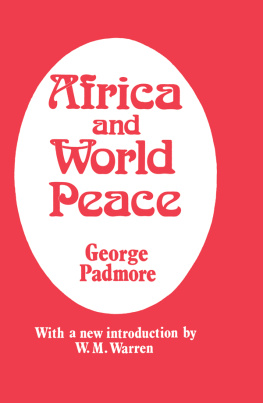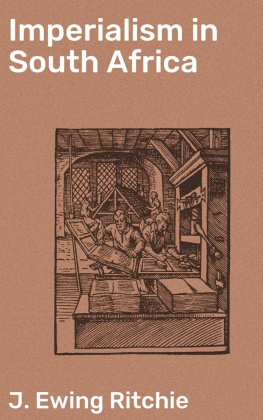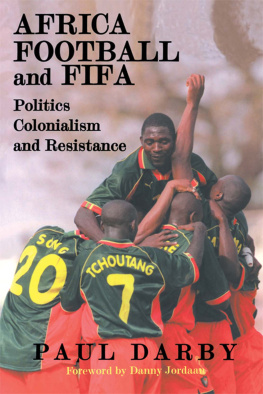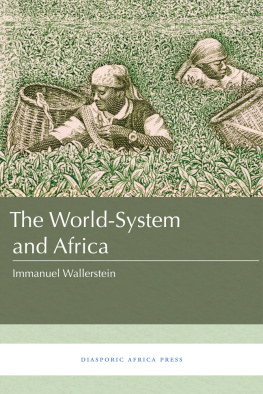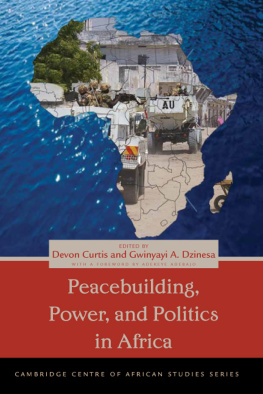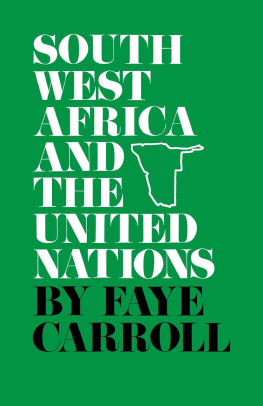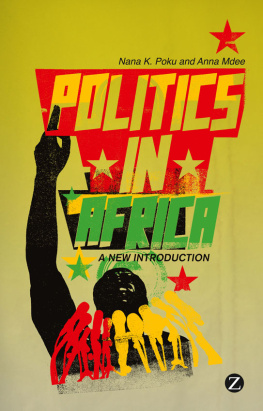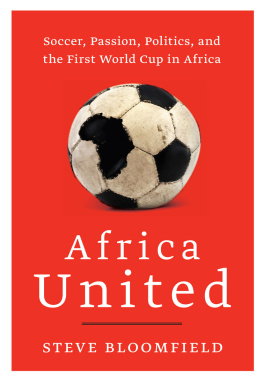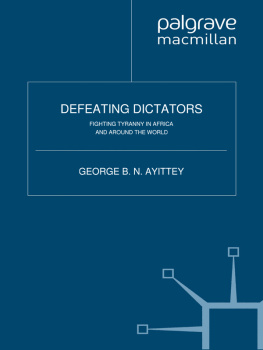First published 1937 by Frank Cass and Company Limited
First edition 1937
Second edition 1972
Published 2019 by Routledge
2 Park Square, Milton Park, Abingdon, Oxon, OX14 4RN
52 Vanderbilt Avenue, New York, NY 10017
Routledge is an imprint of the Taylor & Francis Group, an informa business
New introduction Copyright 1972 W. M. Warren
All rights reserved. No part of this book may be reprinted or reproduced or utilised in any form or by any electronic, mechanical, or other means, now known or hereafter invented, including photocopying and recording, or in any information storage or retrieval system, without permission in writing from the publishers.
Notice:
Product or corporate names may be trademarks or registered trademarks, and are used only for identification and explanation without intent to infringe.
ISBN 13: 978-0-7146-1764-0 (hbk)
New Introduction to the Second Edition
George Padmore was a remarkable man. Merely to recount the bare details of his life is to conjure up a story more closely resembling a Graham Greene entertainment than a sober biography. Grandson of a West Indian slave, he eventually became principal adviser to the head of state of one of the wealthiest nations in Africa, as well as one of the major intellectual influences shaping the development of African nationalist ideology. Nor does the dramatic quality of his life rest solely on the contrast between starting point and destination attained. Equally remarkable was the path between those two points.
Born in Trinidad in 1902(), son of a schoolmaster, and graduating from secondary school at the age of 16, he became a journalist (reporting shipping news) but was fortunate enough to be able to continue his education in the U.S.A., which he entered in 1924. The racial pride and antagonisms which he had absorbed from the islands of the Middle Passage, together with his untiring energy and effective oratory - and to a lesser extent his journalistic activities - quickly transformed him into a prominent campus rebel in the days when these were scarcer than now. Although his record at his first university, Fisk University in Nashville, Tennessee, was excellent, he failed to take a Fisk degree, apparently as a result of threats from the Ku Klux Klan. By 1927 he had, passing through New York University Law School en route, joined the U.S. Communist Party and enrolled at Howard Law School, New York.
From 1927, the following seven years of his life were dominated by the imperatives of a professional revolutionary. It is likely that his enrolment at Howard (which contained the highest proportion of foreign students of any university of the U.S., many from British colonies), was in response to Party directives. In 1928 his revolutionary activities required the adoption of a cover name (he was born Malcolm Ivan Meredith Nurse) and George Padmore was created. He quickly rose to prominence in Howards political life, and eventually came to be regarded as one of the most promising young leaders of his generation and colour; he became increasingly active in Communist Party affairs, especially journalistically, meanwhile earning his living as a janitor and on the Hudson River Line boats.
By 1929 Padmore had moved into the sphere of international revolutionary activity, marked by his attendance at the Second Congress of the League against Imperialism, held in Frankfurt, which decided to organise a Negro Workers Conference in 1930. Immediately afterwards he was a delegate to the Trade Union Unity League Convention in Cleveland and in late 1929, together with William Z. Foster, leader of the U.S. Communist Party, he delivered a verbal report on this Convention to the Comintern in Moscow.
The impression he made then marked a turning point in his career. He became an important official in the Profintern or Red International of Labour Unions - engaging in a variety of activities and moving among men at the pinnacles of power. In 1930 he was lecturing at the Soviet University of Kutvu (the University of the Toilers of the East); he became known as an American specialist and then head of Profinterns Negro Bureau, contributing articles on negro and African affairs to the English-language Moscow Daily News. Perhaps the best indications of the dizzy heights he reached was his membership of the Comintern Commission set up to investigate the charges of ultra-left deviation levelled by Mao-Tse-Tung against Li Li-san. A more formal and indeed emptier honour was his brief membership of the Moscow City Soviet to which he was elected along with Kaganovitch and Stalin.
During the next four years Padmore went through the most dangerous phase of his career. The Profintern had established a new subsidiary - the International Trade Union Committee of Negro Workers (ITUC-NW) which in March 1931 started issuing a monthly journal - the Negro Worker. After a brief appearance from Vienna, the Negro Worker was printed in a run-down waterfront district of Hamburg, with the journal and the ITUC-NW committee under the protection, in Padmores words, of the communists and revolutionary seamen and dockers of Hamburg.() Padmore quickly became editor of the Negro Worker and a prolific contributor as well as secretary of the ITUC-NW. Street battles between Nazis and Communists were a feature of Hamburg life in addition to normal police harassment of the K.P.D. and the ITUC-NW. Nevertheless, the ITUC-NW attained a high level of activity, Padmore himself playing an important role in the first year of the committees existence writing six of the twenty-five pamphlets produced by the organisation. One of these, a small book, Lije and Struggles of Negro Toilers, was to become a minor revolutionary classic.
With the coming of Hitler in 1933, the Negro Worker was driven to Copenhagen and Padmore suffered brief imprisonment, eventually being deported to England on the strength of his British passport. There the Communist Party was legal and Padmore continued to nurse along the Negro Worker. However Hitler had other and more profound effects on Padmores life. The growing menace with which Nazi Germany confronted the Soviet Union led to intensive efforts by that country to achieve a rapprochement with the democratic capitalist powers, and in August 1933 the Comintern accordingly decided to disband the ITUC-NW since that organisation had proved a persistent thorn in the flesh of the Western powers. This marked a general Soviet, and thus Comintern, policy of easing up on the anti-imperialist struggle in order to achieve unity against the fascist powers and caused Padmores break with the Comintern, formalised by the Control Commission of that body in June 1934.

